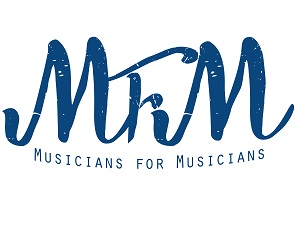By Dawoud Kringle
On Friday, December 2nd, 2022, MFM held its annual membership meeting via Zoom conference. The meeting was moderated by MFM Vice President David Belmont.
The first order of business was the board election. The result of the vote kept the current board in their position:
– Sohrab Saadat Ladjevardi (president)
– David Belmont (vice president)
– Barry Heyman
– Keith Levenson
– Mario Guarneri
– Roger Blanc
– Stephen Johnson
– Adam Reifsteck
– Peter Wetzler
Reifteck and Wetzler are the newest additions to the board.
27 votes were received by dues paying members (9 voted by email, 18 in person). There were 0 call-ins. 18 members did not vote (this figure includes non-paying members, Honorary Member Dr. Cornell West, and Complimentary Member Rick Urfik).
There were also three canceled memberships in 2022.
David Belmont gave a financial report. MFM is ahead. We raised more this year than last year: this year’s income was $4,870 (as opposed to $4,344 in 2021). Most of this income came from the seven new members who joined this year. We were $118 in the red, and have almost $6,600 in surplus revenue. There was a major increase in our website fees because we bought a three year license from GoDaddy for $1.673 (a considerable increase from the $134 we paid last year). MFM had officially joined other musicians organizations. This incurred $320 in dues for those organizations. Additionally, MFM purchased liability insurance to protect the board member in the event that anybody sues us. MFM’s total operating cost / expenses for 2022 was $4988. This is an increase from our former expenses, which have been between $2,000-4,000.
Next on the agenda was the membership drive report by Sohrab Saadat Ladjevardi. On November 1s MFM announced via email and social media that each member was asked to recruit one new member. This would double our membership. The increase / growth of our membership is essential to the survival of MFM, as technically, our 501(c)6 status requires us to be self-sustaining. As of the date of the meeting, MFM recruited two new members . Ladjevardi urged us to bring these numbers up. To facilitate this, the board created a recruitment manual explaining MFM’s mission. Some discussion about how to utilize the manual followed.
Roger Blanc presented a report on MFM’s achievements for 2022 and goals for 2023. He began by mentioning that our recent webinars and podcasts show an almost unprecedented variety in presentation that transcends genres. MFM is bringing diverse paths together. This is a good promotional item.
Our accomplishments included:
Our webinars and podcasts with a variety of distinguished guests
We have received and given advice regarding government unemployment benefits, and the New York State $200 million seed money grant
Our online magazine DBDBD continuing its work
Increased social media presence
Advocated for musicians with politicians and political organizations.
Alliances and collaborations with other musician’s rights organizations
We supported the Recording Academy to legislate the American Fairness Act, Help Independent Tracks Act, Peace Through Music Diplomacy Act, and the Restoring Artistic Protection Act,
MFM Kingston chapter growth.
2023 goals:
Recruit more people
Connection to Germany through Pro Musik
Reach out to other musicians rights organizations.
Chapters in Las Vegas and maybe Iran
Work out marketing strategy
We are also seriously contemplating charge non-members a modest fee of $5.00 to join zoom events (to mitigate problems with “zoom-bombing”).
Stephen Johnson gave a report about the Hudson Valley chapter. Venues are starting to get operational again. Peter Wetzler talked about possible venues (including The Armory in Manhattan) and hosting MFM events.
Mario Guarneri discussed some San Francisco venues connected with Jazz in the Neighborhood. They are securing funding to pay musicians for performances. There was also discussion on new venues that are opening up that pay a guaranteed fee, and progress being made within the Independent Musicians Alliance (i.e. their work towards 501(c)3 status, member’s benefits, and venues favoring IMA members). The Guaranteed Wage Fund is also putting out about $1000 a week to supplement musicians who perform in clubs, provided the clubs guarantee at least half their scale ($150 per player). Guarneri also sent out 500 letters soliciting donations from various organizations to subsidize this.
At this point, Ladjevardi floated the idea of creating a 501(c)3 under the MFM umbrella to help bring in revenue. Personally, I think it’s a good idea.
Barry Hyman spoke about musicians rights issues. A bill was introduced for interactive streaming. Mechanical streaming rates have increased 15.35% starting in 2023. Apple announced they are increasing their monthly subscription fee. The mechanical fees are tied to the increase. There was a settlement between various organizations regarding mechanical royalties for physical CDs, vinyl, and downloads. For years the royalty rate was fixed at 9.1 cents. They proposed to increase it by 32% to 12 cents. This was presented to the Copyright Royalty Board for approval. This would be a significant increase in publishing royalties for physical products and downloads. Hyman also mentioned that David Israelite, CEO of the NMPA (National Music Publishers’ Association) found out that in 2020, PROs have been receiving about $150 million, and record labels have received $1.2 billion in royalties for digital radio performances (in the US, royalties are not paid for terrestrial radio). Israelite and the NMPA are working on getting better public performance royalties. Hyman brought the Mechanical Licensing Collective, which collects and distributes royalties for interactive streaming, and urged members to sign up with them. He went on to discuss bills that are being considered, such as the American Music Fairness Act (an attempt to establish royalties for performance on terrestrial radio), the Help Independent Tracks Succeed act (HITS; a bill that would allow artists / producers to deduct up to $150K as business expenses), the Promoting Peace and Cultural Experience act (promoting peace through music related global exchange programs), and the Restoring Artistic Protection act (offering legal protection to artists whose lyrics could be used as evidence in criminal and civil proceedings). There was also discussion about the Case Copyright Claims board, which is a small claims court at the Copyright Office that settles copyright disputes less than $30K, and social media platforms, including a very new one called Triller, NFTs, and metaverse platforms, which do not license music and who need to start paying royalties.
Finally, Adam Reifstek and I offered a report about the MFM Speaks Out podcast. Reifstek offered analytics on the podcast. As of this writing, MFM Speaks Out has 2352 downloads, averaging 13 listeners a week. Our top episodes are Royal Bayyan, Mark Deutsch, and William Parker (episodes 25, 9, and 40 respectively). Most of the listening methods are direct through SimpleCast, which hosts the podcast, and others such as Echo Podcasts, and Apple. The US is our largest market, followed by France, the UK, Germany, and Canada. I offered some brief points about new modifications to the format to make it more effective and attractive to listeners. In 2022, I hosted every episode. I also mentioned our year end retrospective which began last year, and which we will continue. We have also been trying to cover as many different and varied aspects of the music world, and increase the standard of what we can provide to our audience.
2022 saw MFM continuing its pursuit of excellence and progress in empowering musicians through communal action, and providing resources and information to the music community. We intend to exceed our past accomplishments in 2023.

